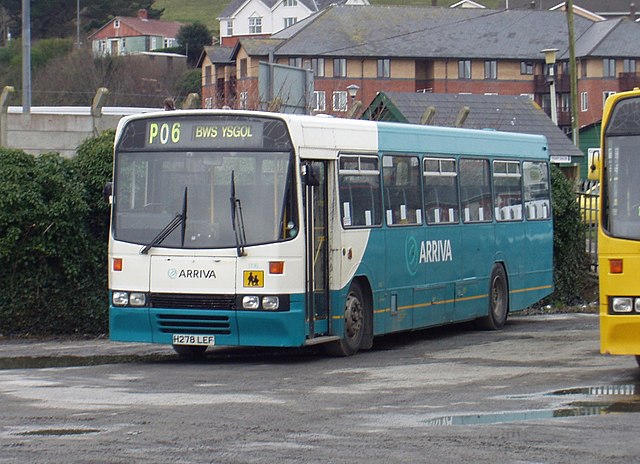 Environment
Environment 
Yesterday I chaired the first meeting of a new Bus Policy group established by Transport Minister, Edwina Hart, to develop solutions to the challenges – some might say crisis – facing Wales’s bus industry and its hundreds of thousands of passengers. Extraordinarily, this was the first time that the bus operators, local authorities and passenger representatives had sat down together to try to resolve some of the problems.
My journey home after the meeting was a salutary reminder – a lived experience if you like – of the problems besetting the industry.
First of all, my Stagecoach bus was 40 minutes late, not because of leaves on the line or the failure of the driver to turn up but because of that enemy of punctuality – congestion. I and the other 20 or so passengers endured a two hour journey to travel a mere 25 miles; at 12.5 miles an hour the service was the same speed as a cantering horse. Stagecoach indeed!
Congestion is a serious issue for bus operators as well as passengers, substantially adding to their costs as they use extra fuel and need extra vehicles and drivers to operate the route. Ironically, the congestion was even worse by some bizarre bus lanes – unused by the bus – that reduced traffic to a single lane.
Second, it turned out that bus’s morning departure times had changed the previous day, leaving stops in the Heads of the Valleys 10 minutes earlier to compensate for congestion. How did the bus company tell its passengers? With a small notice, tucked in a corner of some – but not all – buses on the route. Dozens of passengers who use the same service every day to get to work were totally unaware of the change, so missed their usual bus and were late for work. There was no timetable or information sheet available to passengers and no notice of the change at bus stops – I cannot imagine any other service provider, public or private, which treats its customers with such complete contempt. We’re not talking about people paying £1.20 either – a day return is £8 and an annual season ticket is over £1,000.
This points to the third problem – the apparent failure of the bus operator to respond to market demand. Several people I chatted with (it was a long journey) wanted fast early-morning service to Cardiff, which would save 20 minutes on the journey time by by-passing Pontypridd. By stopping at least every 15 miles a bus is classed as a ‘local’ service and can therefore accept concessionary fares and (until very recent changes) claim government help with operating costs. The suspicion is that the certainty of grants and concessionary fares is more attractive than the risks of the fare box.
And last, and most certainly not least, was the future of the service itself. As I travelled home, news broke that Stagecoach, the bus operator, is to close its Brynmawr depot, where the service is based, with the possible loss of 77 jobs. The driver’s job and the continued operation of the service between Merthyr and Brynmawr were in question. Operators have to give just 6 weeks’ notice of de-registering a service to the Traffic Commissioner – hapless passengers almost always get much less. Yet people (including me until recently) rely on this service to get to and from work, to visit relatives and to go shopping.
Frankly, I could have done without the direct experience of the problems of congestion, lack of information, uncertainty and an absence of services that people really want – but there could be no better illustration of the challenge ahead.
Victoria Winckler is Director of the Bevan Foundation.


